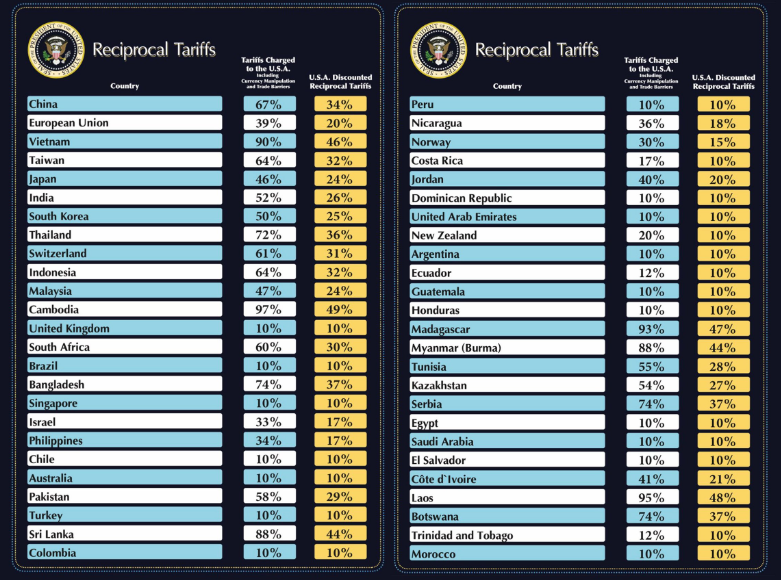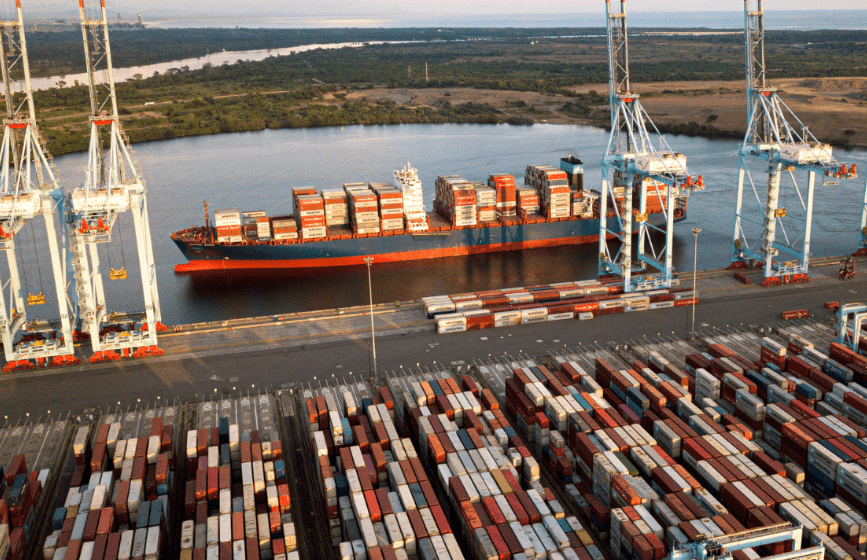Donald Trump’s reciprocal tariffs will apply to all countries at a minimum rate of 10%, with the exception of Mexico and Canada.
Trump based this measure on the International Emergency Economic Powers Act (IEEPA).
Among the reciprocal tariffs on U.S. trading partners, the following stand out:
- China: 34 percent.
- European Union: 20 percent.
- Vietnam: 46 percent.
- Taiwan: 32 percent.
- Japan: 24 percent.
- India: 26 percent.
- South Korea: 25 percent.
Donald Trump’s reciprocal tariffs

Canada and Mexico uphold orders on fentanyl and migration.
According to a White House fact sheet, the existing orders on fentanyl and migration for Canada and Mexico remain in place. These will not be affected by the new order.
Tariffs on T-MEC products
Products that comply with the U.S.-Mexico-Canada Agreement (USMCA) will continue to be exempt from tariffs. That is, these products will maintain a 0 percent tariff. However, products that do not comply with USMCA regulations will be subject to a 25 percent tariff. In the case of energy and potash products from Canada, non-USMCA compliant products will face a 10 percent tariff.
Possible changes to existing orders
The fact sheet also notes that, in the event that existing orders on fentanyl and migration are cancelled, USMCA-compliant products will continue to receive preferential treatment. On the other hand, those that do not comply will be subject to a reciprocal tariff of 12 percent.

